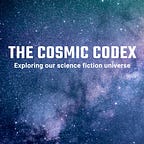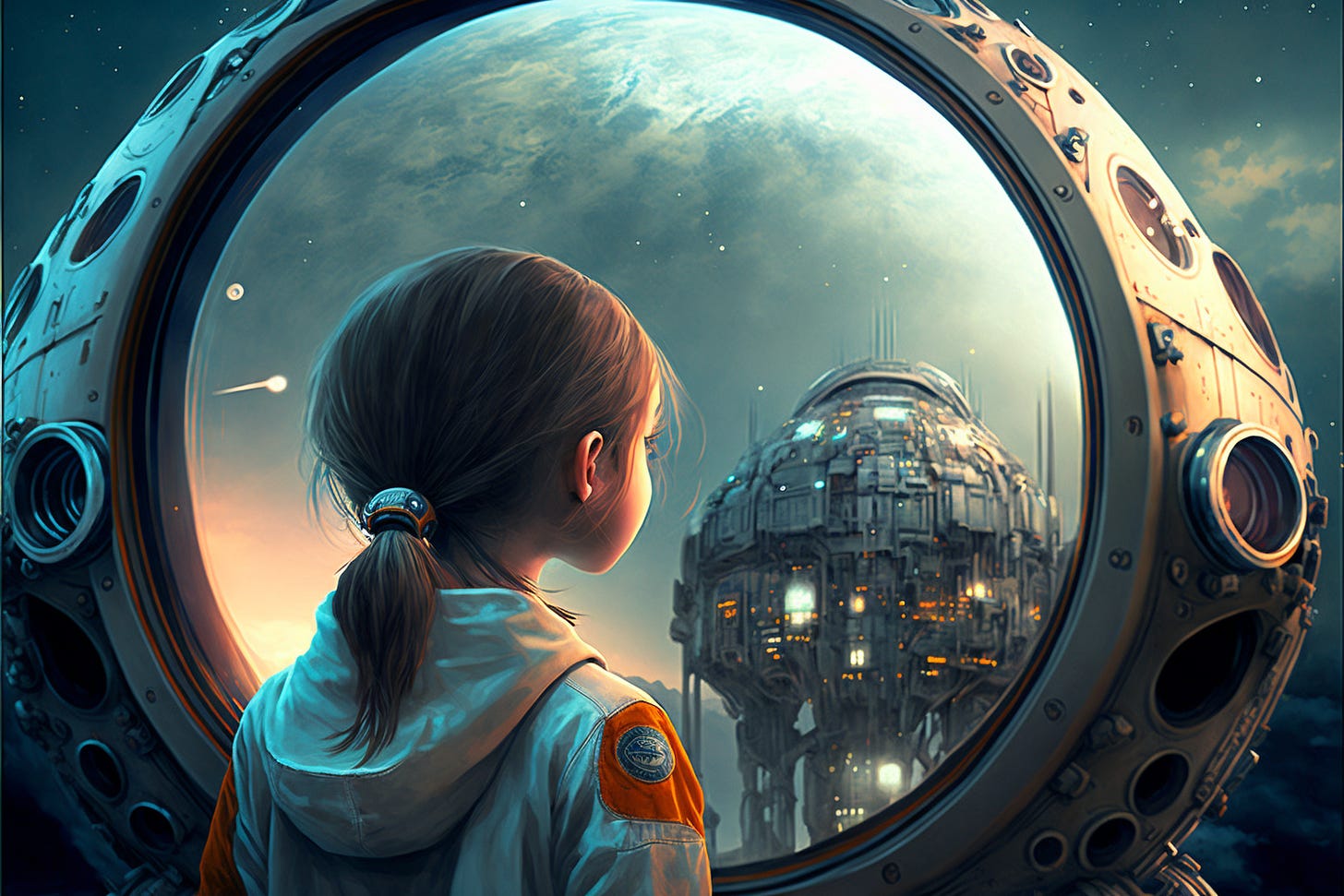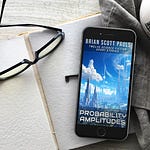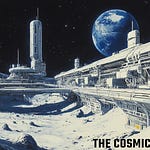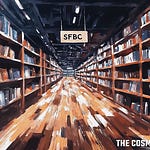by Brian Scott Pauls
Science fiction historian James Gunn used to tell us science fiction can save the world. An evangelistic zeal has characterized certain elements of sf since its beginning. That same zeal is alive and well today, in subgenres like cli-fi and afrofuturism.
I’m currently taking part in The History of Science Fiction. It's a course taught by Ada Palmer (author of the Terra Ingota series) and Jo Walton (author of Among Others). The class “…examines the evolution of science fiction literature from its pre-modern roots to the present, looking at the genre's relationship with political and social movements, and changes in science and technology.”
You can view a recorded introduction, presented by Walton and Palmer on December 20.
The two authors discuss several factors that set sf apart from other genres. Among these is what Walton calls “the project of science fiction...an agenda of trying to shape the future.”
Science fiction, Palmer elaborates, affects “…the way we think about technology...” This includes the societal conversations we have around adopting new technologies. Science fiction becomes a tool for evaluating the potential effects of technological change. Our pre-20th century predecessors didn't have access to this tool. As Palmer puts it, “…science fiction lets us have our moral debate before we get to the point that we have to deploy [a new technology]”.
Walton shares a specific example. In Solution Unsatisfactory, Robert A. Heinlein foresees the doctrine of Mutually Assured Destruction. He presents it as the only solution to the problem of rival nations armed with atomic weapons. Heinlein published his story in 1941. This was a year before the beginning of the Manhattan Project.
Walton's example is particularly meaningful to me. I grew up during the 1980s, under the shadow of Mutually Assured Destruction. Heinlein's prediction validates my belief in science fiction's unique and necessary perspective.
Of course, sf is not a crystal ball, which can always tell us what will happen if we do this instead of that.
As Walton puts it, “…science fiction doesn’t predict everything…science fiction isn’t preparing you for the future that’s in the book, which will always be wrong. But if you read lots and lots of science fiction books, it prepares you for whatever future will come along—which won’t be like any of them, but which might have aspects of all of them…you will just have thought about more things by reading a bunch of science fiction…”
Heinlein agreed:
“…science fiction…has as its primary postulate that the world does change. I cannot overemphasize the importance of that idea.”
So how did sf become what it is today—a distinct framework for examining possible futures? Palmer points out that this wasn’t a logical imperative. Before the 20th Century, authors dispersed science fictional elements among other genres. After 1900, this loose set of related concepts came together in a genre of their own.
“A lot of it,” Walton explains, “does have to do with the pulp magazines and Hugo Gernsback and then John Campbell and early editors…pulling it together…with…an agenda of…educating people to live in the future, and to have ideas about the future…”
Of course, she points out, this experiment was not completely successful. Consider an example (mine, not Walton's) from the United States. Our timid response to COVID-19 vaccination has not reflected a public ‘educated to live in the future.’
But neither was the effort a complete failure. Science fiction didn’t fade away. It’s still with us, and it's more influential than ever.
Today, we face emerging technologies, such as AI, CRISPR, and brain computer interfaces. We need the insight of sf. It’s a tool we must keep sharp and in good working condition, if we want it to serve us well in the decades ahead. A good way to assess the value of something is to study where it came from, what it’s accomplished, and how it can benefit us. Understanding the history of sf can help us use it well. I’m looking forward to the rest of The History of Science Fiction. I'm also looking forward to new sf stories about the possibilities of an unsettled future.


